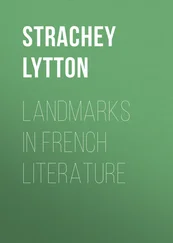George Saintsbury - A Short History of French Literature
Здесь есть возможность читать онлайн «George Saintsbury - A Short History of French Literature» — ознакомительный отрывок электронной книги совершенно бесплатно, а после прочтения отрывка купить полную версию. В некоторых случаях можно слушать аудио, скачать через торрент в формате fb2 и присутствует краткое содержание. ISBN: , Жанр: foreign_prose, на английском языке. Описание произведения, (предисловие) а так же отзывы посетителей доступны на портале библиотеки ЛибКат.
- Название:A Short History of French Literature
- Автор:
- Жанр:
- Год:неизвестен
- ISBN:http://www.gutenberg.org/ebooks/33062
- Рейтинг книги:3 / 5. Голосов: 1
-
Избранное:Добавить в избранное
- Отзывы:
-
Ваша оценка:
- 60
- 1
- 2
- 3
- 4
- 5
A Short History of French Literature: краткое содержание, описание и аннотация
Предлагаем к чтению аннотацию, описание, краткое содержание или предисловие (зависит от того, что написал сам автор книги «A Short History of French Literature»). Если вы не нашли необходимую информацию о книге — напишите в комментариях, мы постараемся отыскать её.
A Short History of French Literature — читать онлайн ознакомительный отрывок
Ниже представлен текст книги, разбитый по страницам. Система сохранения места последней прочитанной страницы, позволяет с удобством читать онлайн бесплатно книгу «A Short History of French Literature», без необходимости каждый раз заново искать на чём Вы остановились. Поставьте закладку, и сможете в любой момент перейти на страницу, на которой закончили чтение.
Интервал:
Закладка:
Si Lodhuvigs sagrament, quæ son fradre Karlo jurat, conservat, et Karlus meos sendra de sua part nun los tanit, si io returnar nun l'int pois, ne io ne nëuls, cui eo returnar int pois, in nulla aiudha contra Lodhuwig nun li iv er.
Buona pulcella fut Eulalia,
bel auret corps, bellezour anima.
Voldrent la veintre li deo inimi,
voldrent la faire dïaule servir.
Elle non eskoltet les mals conselliers,
qu'elle deo raneiet, chi maent sus en ciel,
Ne por or ned argent ne paramenz,
por manatce regiel ne preiement.
Nïule cose non la pouret omque pleier,
la polle sempre non amast lo deo menestier.
E poro fut presentede Maximiien,
chi rex eret a cels dis sovre pagiens
El li enortet, dont lei nonque chielt.
qued elle fuiet lo nom christiien.
Ell' ent adunet lo suon element,
melz sostendreiet les empedementz,
Qu'elle perdesse sa virginitet:
poros furet morte a grand honestet.
Enz enl fou la getterent, com arde tost.
elle colpes non auret, poro nos coist.
A ezo nos voldret concreidre li rex pagiens;
ad une spede li roveret tolir lo chief.
La domnizelle celle kose non contredist,
volt lo seule lazsier, si ruovet Krist.
In figure de colomb volat a ciel.
tuit orem, que por nos deguet preier,
Qued auuisset de nos Christus mercit
post la mort et a lui nos laist venir
Par souue clementia.
Christus Jhesus den s'en leved,
Gehsesmani vil' es n'anez.
toz sos fidels seder rovet,
avan orar sols en anet.
Grant fu li dois, fort marrimenz.
si condormirent tuit adés.
Jhesus cum veg los esveled,
trestoz orar ben los manded.
E dunc orar cum el anned,
si fort sudor dunques suded,
que cum lo sangs a terra curren
de sa sudor las sanctas gutas.
Als sos fidels cum repadred,
tam benlement los conforted
li fel Judas ja s'aproismed
ab gran cumpannie dels judeus.
Jhesus cum vidra los judeus,
zo lor demandet que querént.
il li respondent tuit adun
'Jhesum querem Nazarenum .'
'Eu soi aquel,' zo dis Jhesus.
tuit li felun cadegren jos.
terce ves lor o demanded,
a totas treis chedent envers.
Domine deu devemps lauder
et a sus sancz honor porter;
in su' amor cantomps dels sanz
quæ por lui augrent granz aanz;
et or es temps et si est biens
quæ nos cantumps de sant Lethgier.
Primos didrai vos dels honors
quie il auuret ab duos seniors;
apres ditrai vos dels aanz
que li suos corps susting si granz,
et Evvruïns, cil deumentiz,
qui lui a grand torment occist.
Quant infans fud, donc a ciels temps
al rei lo duistrent soi parent,
qui donc regnevet a ciel di:
cio fud Lothiers fils Baldequi.
il le amat; deu lo covit;
rovat que litteras apresist.
Dialects and Provincial Literatures.
Considering the great extent and the political divisions of the country called France, it is not surprising that the language which was so slowly formed should have shown considerable dialectic variations. The characteristics of these dialects, Norman, Picard, Walloon, Champenois, Angevin, and so forth, have been much debated by philologists. But it so happens that the different provinces displayed in point of literature considerable idiosyncrasy, which it is scarcely possible to dispute. Hardly a district of France but contributed something special to her wide and varied literature. The South, though its direct influence was not great, undoubtedly set the example of attention to lyrical form and cadence. Britanny contributed the wonderfully suggestive Arthurian legends, and the peculiar music and style of the lai . The border districts of Flanders seem to deserve the credit of originating the great beast-epic of Reynard the Fox; Picardy, Eastern Normandy, and the Isle of France were peculiarly rich in the fabliau ; Champagne was the special home of the lighter lyric poetry, while almost all northern France had a share in the Chansons de Gestes, many districts, such as Lorraine and the Cambrésis, having a special geste of their own.
Beginning of Literature proper.
It is however with the eleventh century that the history of French literature properly so called begins. We have indeed few Romance manuscripts so early as this, the date of most of them not being earlier than the twelfth. But by the eleventh century not merely were laws written in French (charters and other formal documents were somewhat later), not merely were sermons constantly composed and preached in that tongue, but also works of definite literature were produced in it. The Chanson de Roland is our only instance of its epic literature, but is not likely to have stood alone: the mystery of The Ten Virgins , a medley of French and Latin, has been (but perhaps falsely) ascribed to the same date; and lyric poetry, even putting aside the obscure and doubtful Cantilènes , was certainly indulged in to a considerable extent. From this date it is therefore possible to abandon generalities, and taking the successive forms and developments of literature, to deal with them in detail.
Before however we attempt a systematic account of French literature as it has been actually handed down to us, it is necessary to deal very briefly with two questions, one of which concerns the antecedence of possible ballad literature to the existing Chansons de Gestes, the other the machinery of diffusion to which this and all the early historical developments of the written French language owed much.
Cantilenae.
It has been held by many scholars, whose opinions deserve respect, that an extensive literature of Cantilenae 12 12 The subject of the Cantilenae is discussed at great length by M. Léon Gautier, Les Epopées Françaises , Ed. 2, vol. i. caps. 8-13. Paris, 1878.
, or short historical ballads, preceded the lengthy epics which we now possess, and was to a certain extent worked up in these compositions. It is hardly necessary to say that this depends in part upon a much larger question – the question, namely, of the general origins of epic poetry. There are indeed certain references 13 13 These, which are for the most part very vague and not very early, will be found fully quoted and discussed in Gautier, l. c.
to these Cantilenae upon which the theories alluded to have been built. But the Cantilenae themselves have, as one of the best of French literary historians, the late M. Paulin Paris, remarks of another debated product, the Provençal epic, only one defect, 'le défaut d'être perdu,' and investigation on the subject is therefore more curious than profitable. No remnant of them survives save the already-mentioned Latin prose canticle of St. Faron, in which vestiges of a French and versified original are thought to be visible, and the ballad of Saucourt, a rough song in a Teutonic dialect 14 14 Published by Hoffmann von Fallersleben (1837).
. In default of direct evidence an argument has been sought to be founded on the constant transitions, repetitions, and other peculiarities of the Chansons, some of which (and especially Roland , the most famous of all) present traces of repeated handlings of the same subject, such as might be expected in work which was merely that of a diaskeuast 15 15 This word (= arranger or putter-in-order) is familiar in Homeric discussion, and therefore seems appropriate. M. Gaston Paris speaks with apparent confidence of the pre-existing chants , and, in matter of authority, no one speaks with more than he: but it can hardly be said that there is proof of the fact.
of existing lays.
Интервал:
Закладка:
Похожие книги на «A Short History of French Literature»
Представляем Вашему вниманию похожие книги на «A Short History of French Literature» списком для выбора. Мы отобрали схожую по названию и смыслу литературу в надежде предоставить читателям больше вариантов отыскать новые, интересные, ещё непрочитанные произведения.
Обсуждение, отзывы о книге «A Short History of French Literature» и просто собственные мнения читателей. Оставьте ваши комментарии, напишите, что Вы думаете о произведении, его смысле или главных героях. Укажите что конкретно понравилось, а что нет, и почему Вы так считаете.












